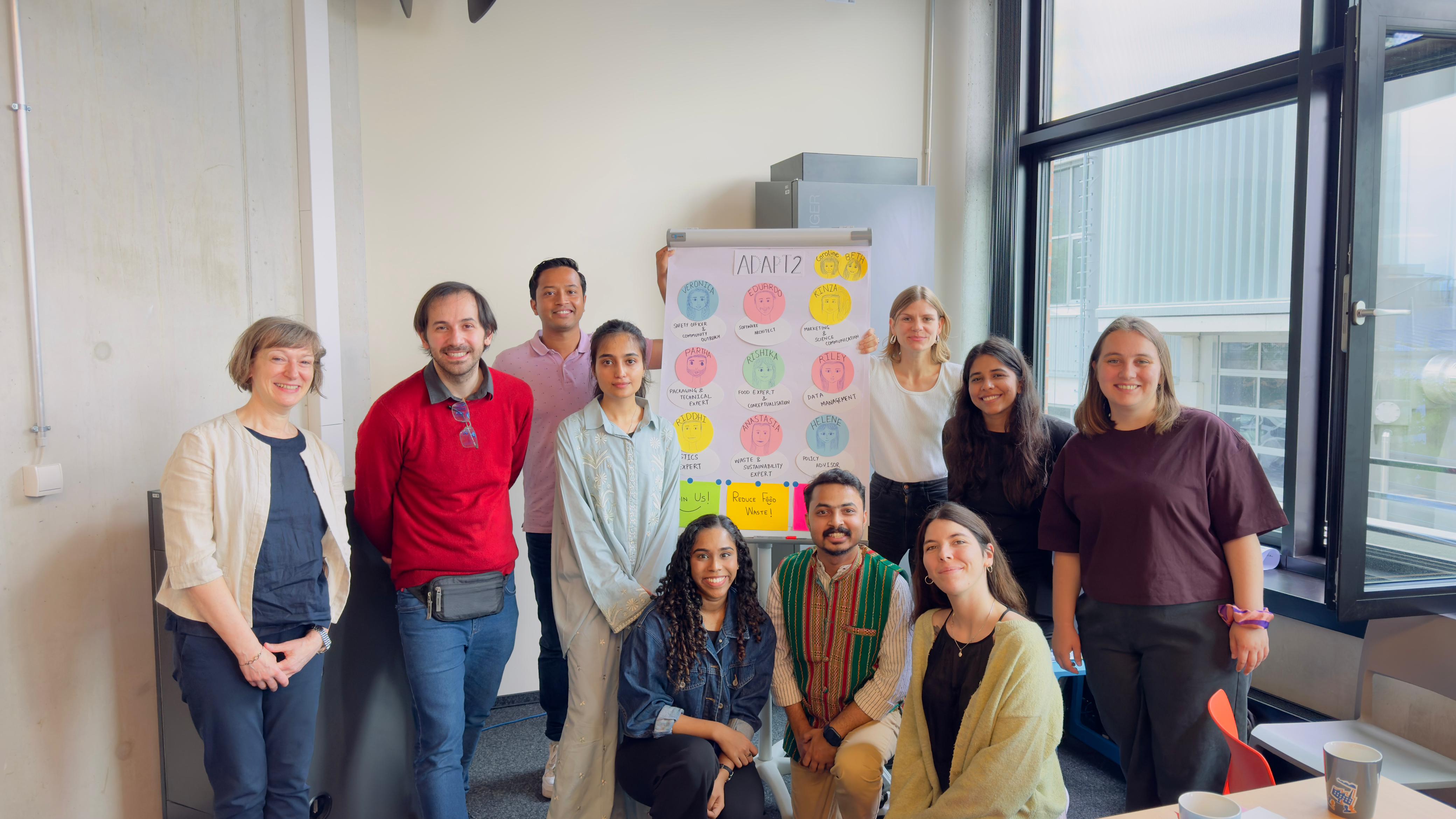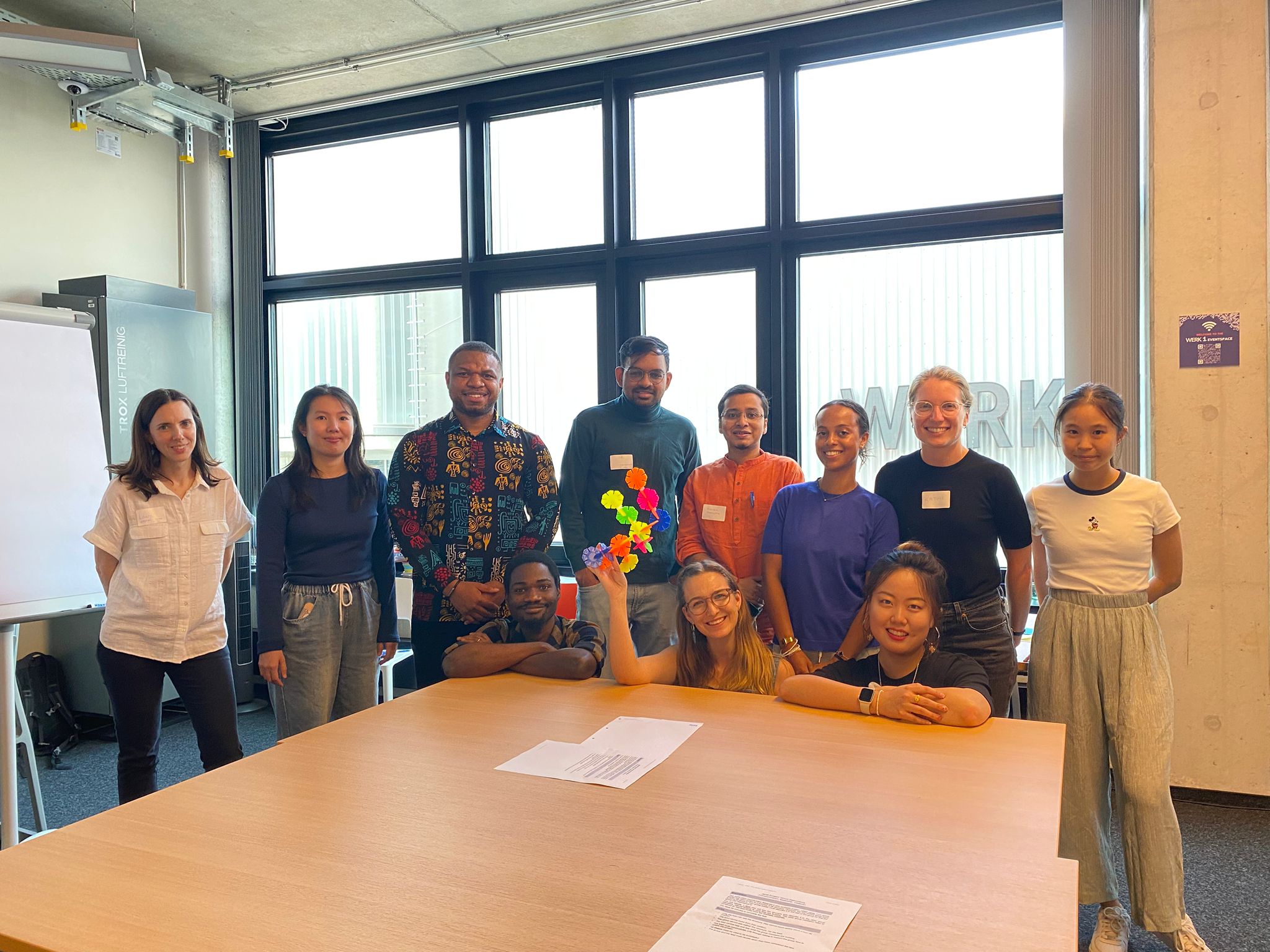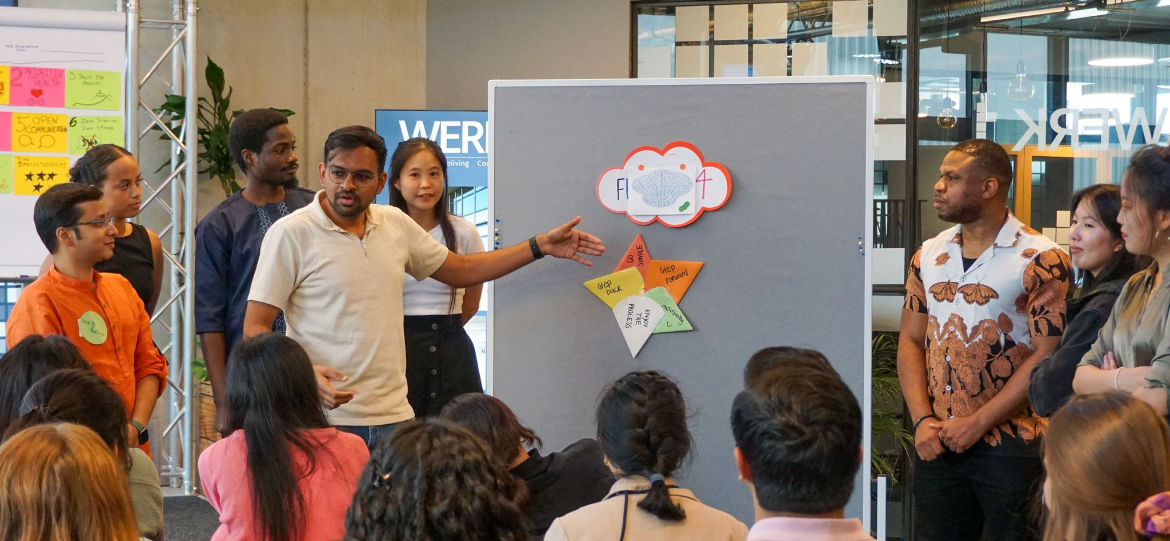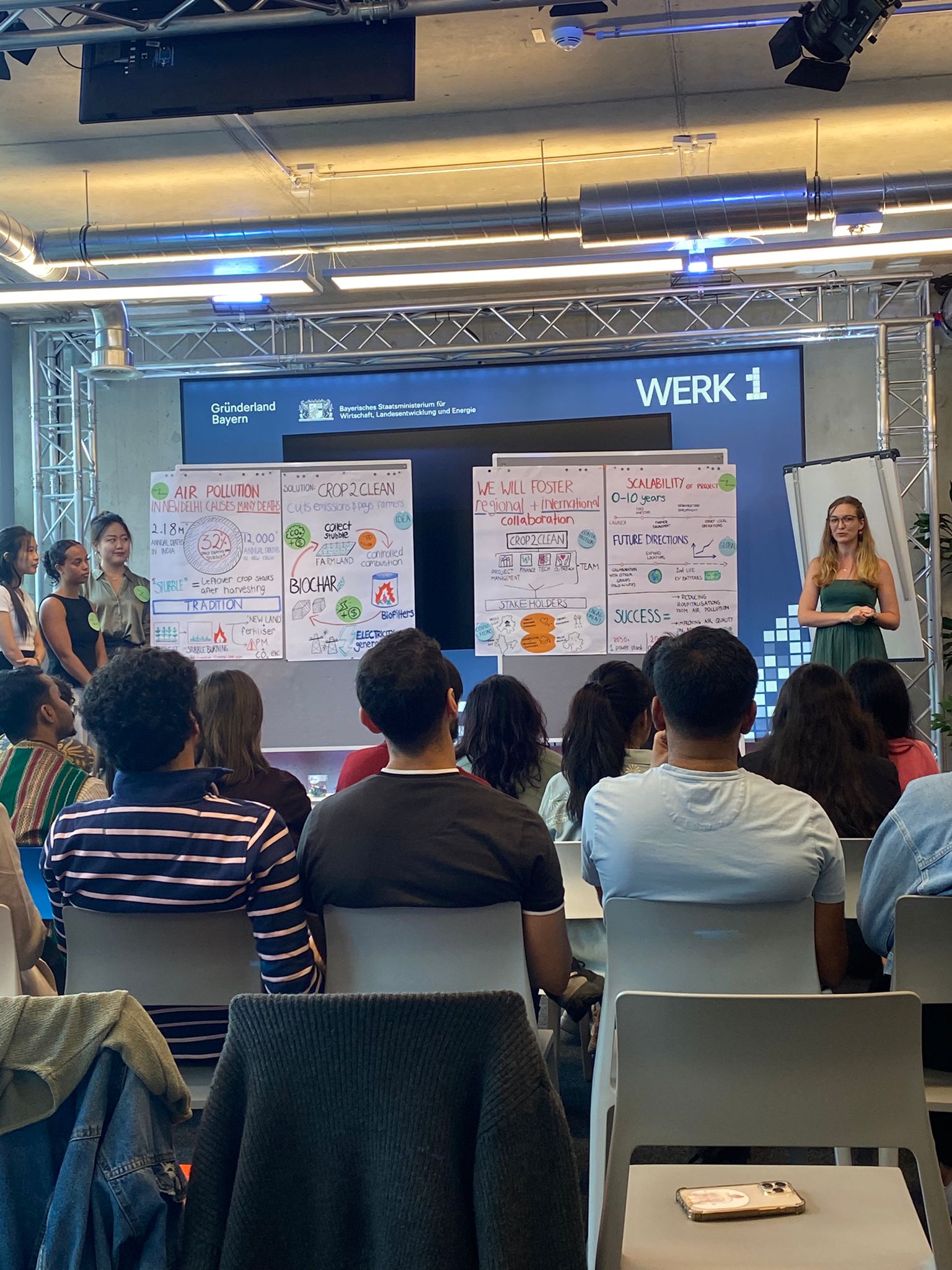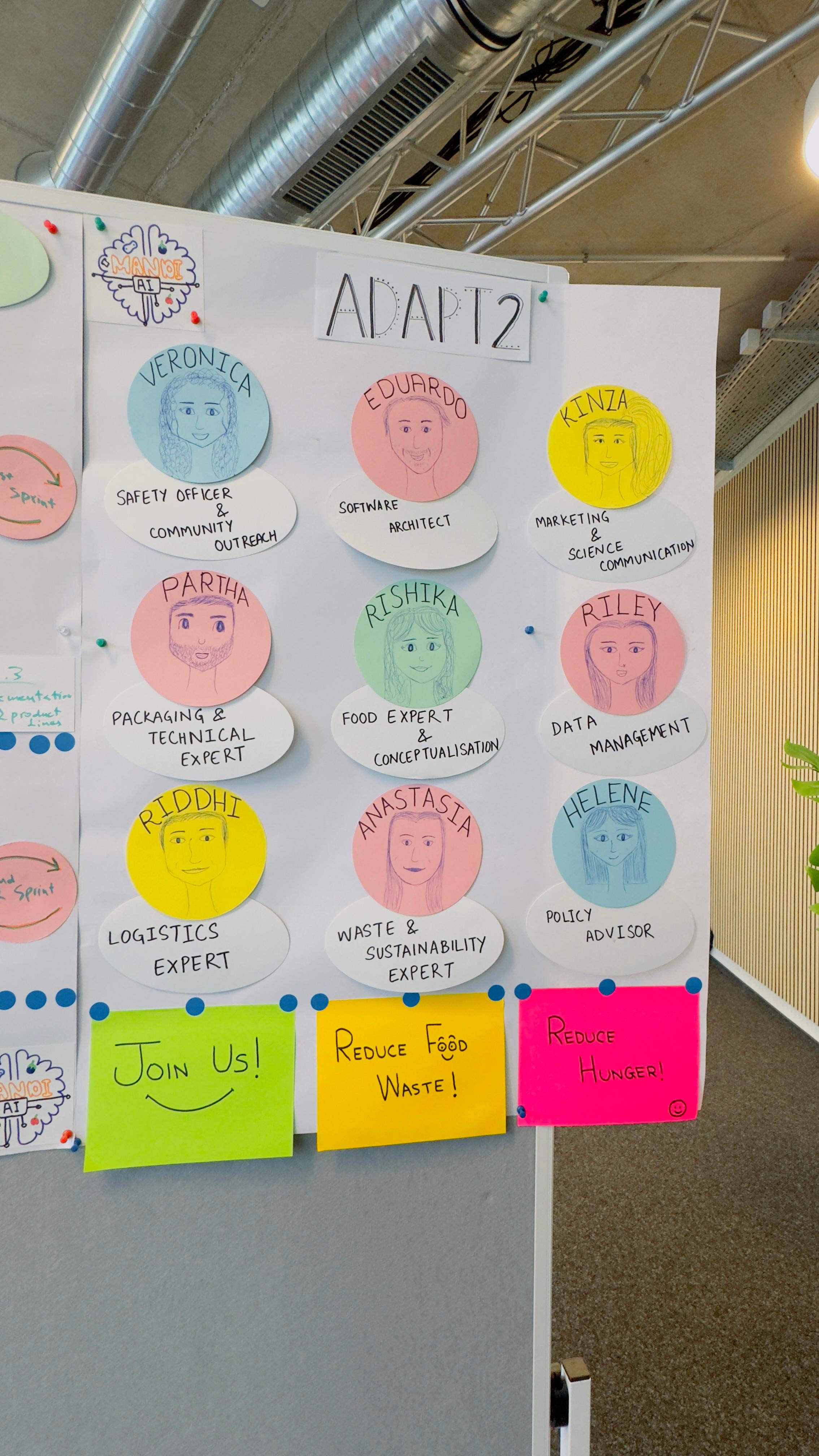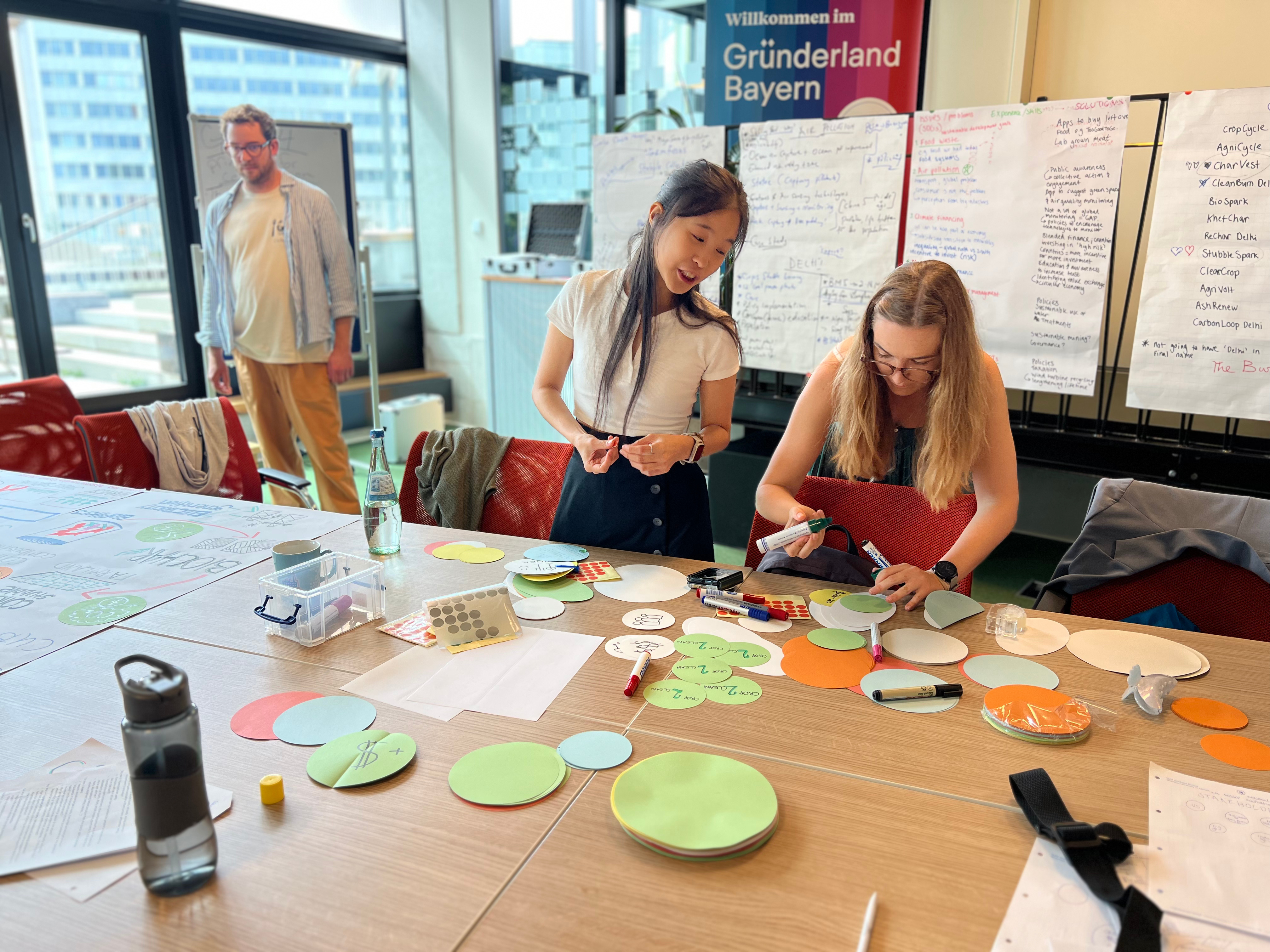- QUASAR
- AquaCycle
- Proteins4Singapore
- Singapore's Pathway to Carbon Neutrality
- CellFACE
- LightSPAN
- Computational Modelling Group
- Energy and Power Systems Group
- SITEM - Singapore Integrated Transport and Energy Model
- Past Projects
News
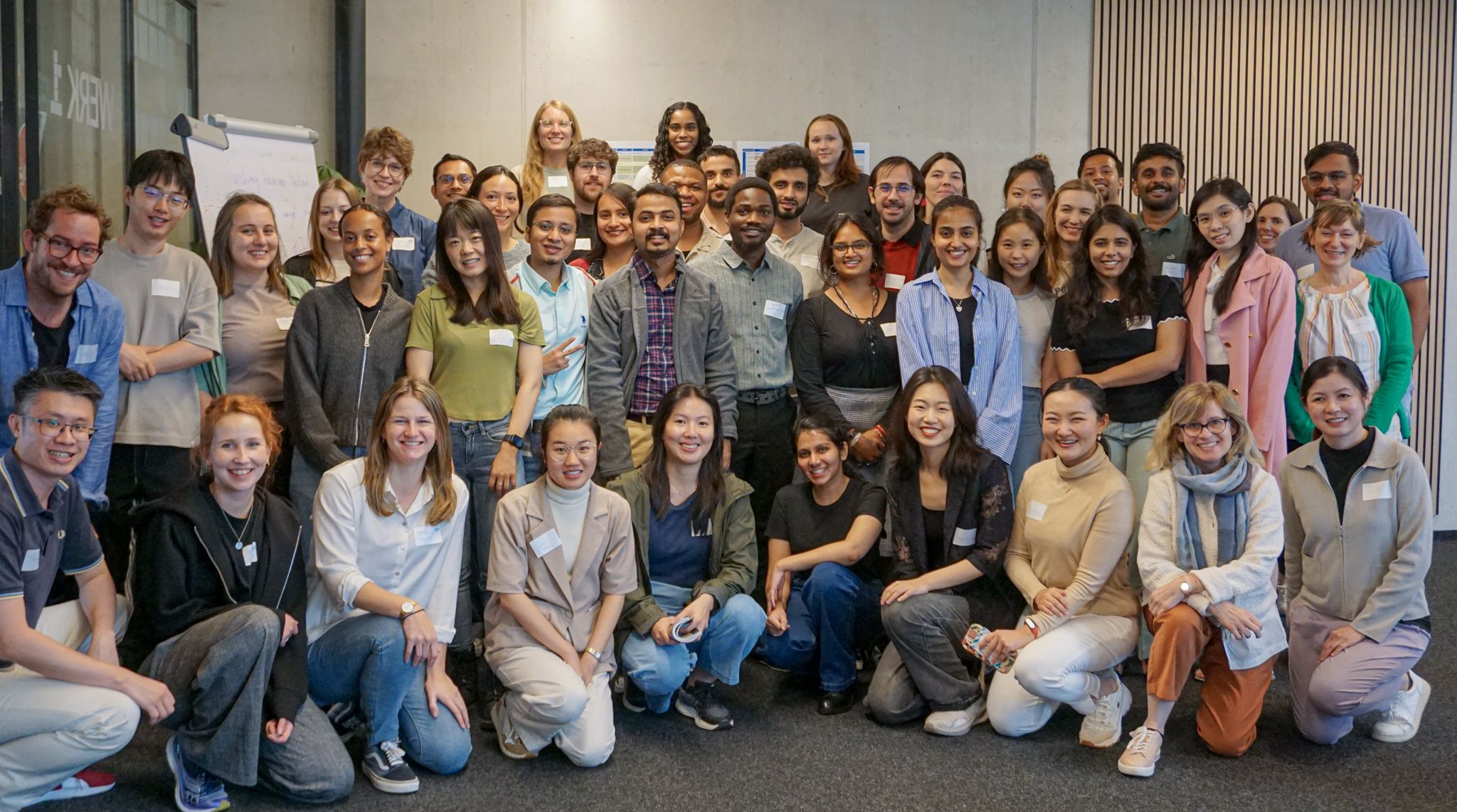
TUMCREATE Researchers Strengthen their Soft Skills at Imperial-NTU-TUM Global Fellows Programme 2025
Converging multidisciplinary solutions globally 25.08.2025From sparking fresh ideas to building global connections – TUMCREATE doctoral researchers took collaboration and creativity to the next level at the Global Fellows Programme (GFP) 2025.
This year’s fifth trilateral GFP was held in Munich, Germany, in partnership with Imperial in London, Nanyang Technological University (NTU) and Technical University of Munich (TUM).
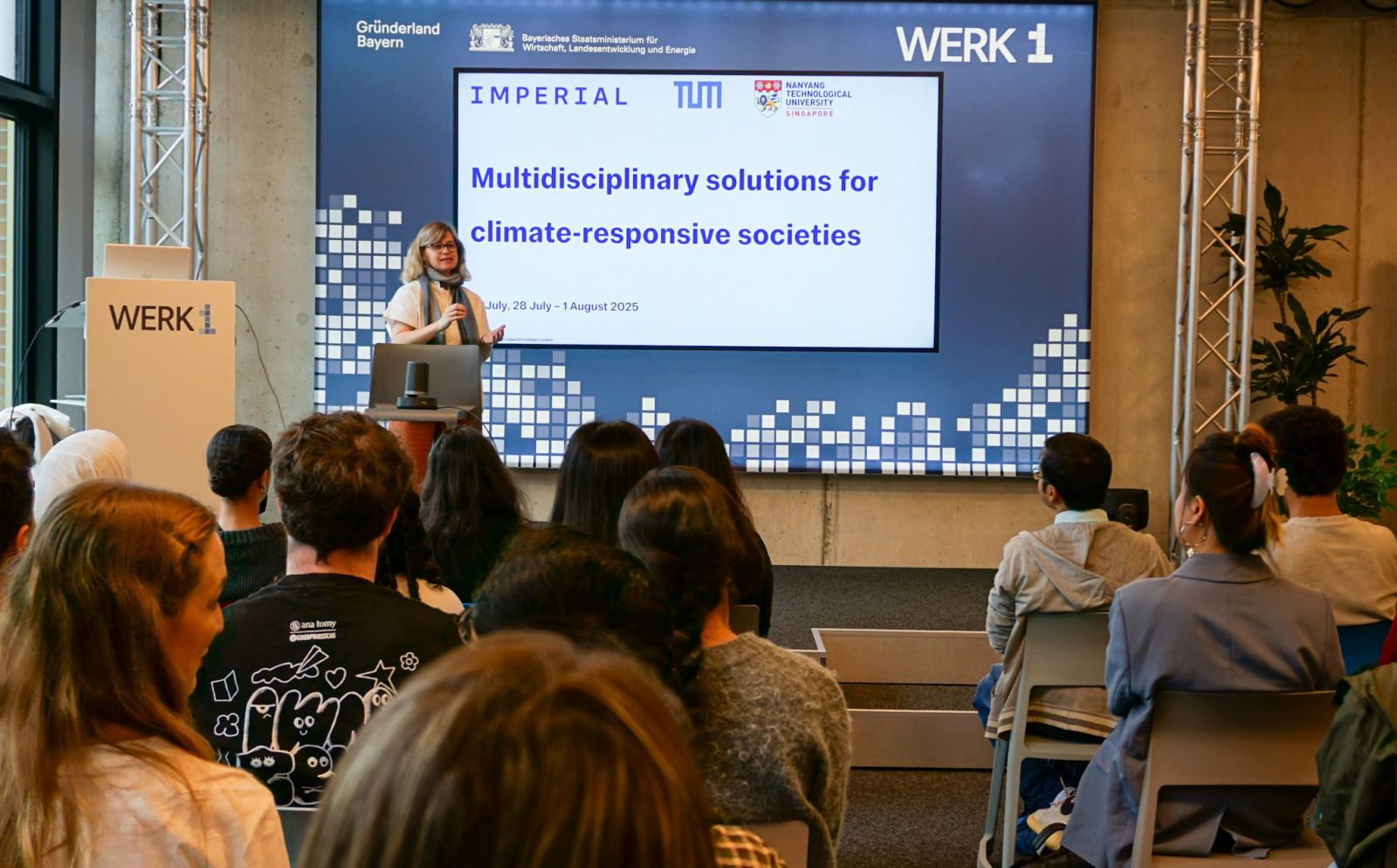 (Photo credit: TUM-GS)
(Photo credit: TUM-GS)Following the theme “Multidisciplinary Solutions for Climate-Responsive Societies,” our research associates Shiddalingeshwar Devihosur (Sid), Sophia Morsten, and Rishika Batra engaged in cross-cultural discussions and co-created innovative ideas to tackle global challenges for sustainability.
Sid is researching on the integration of renewable energies in ASEAN with a focus on power engineering jointly with teams from NTU. Rishika and Sophia are food technologists specialising in alternative protein as part of the flagship programme Proteins4Singapore. We caught up with Sid, Sophia and Rishika about their experiences with their peers in Munich.
Q. What was your main motivation to apply to the Global Fellows Programme?
Sid: One motivation was fostering inter-disciplinary collaboration with people from diverse backgrounds, something that is not always possible while working in a group from a similar field. Being rather new in the field, it is important for me to establish a strong network and to understand what other students are working on and how they overcome problems in their PhD.
Sophia: It was a valuable opportunity to connect with and get to know my “home institution,” since I had not studied at TUM before. I also saw it as a chance to step outside the research bubble of food science and explore possibilities that extend beyond my field.
Rishika: My primary motivation was to collaborate with researchers from diverse disciplines to explore innovative solutions to climate-related challenges. As a food science doctoral candidate working on sustainable alternative proteins, I wanted to expand my perspective beyond the lab by engaging with engineers from other disciplines, environmental scientists, and policy specialists. The programme offered a unique platform to exchange ideas, bridge disciplinary gaps, and develop actionable strategies for a climate-resilient solutions.
Q. What are your key takeaways from the 5-day programme?
Sid: The GFP allowed me to not only communicate from the perspective of an energy system modeler but also effectively listen to different perceptions to a common problem. Finding a consensus to resolve diverging opinions was also a crucial part of the programme. This is a common and foreseeable issue in academia, especially when working on a project consisting multiple working parts.
Sophia: It was fascinating to see how we could apply our existing skills to completely new projects, how challenging it is to communicate complex topics clearly, how many minds it takes to create something new, and how quickly a strong group spirit can develop.
Rishika: The programme reinforced the importance of integrating social, technological, and environmental dimensions when designing solutions. I learnt how multidisciplinary teams can accelerate impact by aligning expertise. The workshops also enhanced my skills in cross-cultural communication, rapid ideation, and translating scientific research into policy-relevant recommendations.
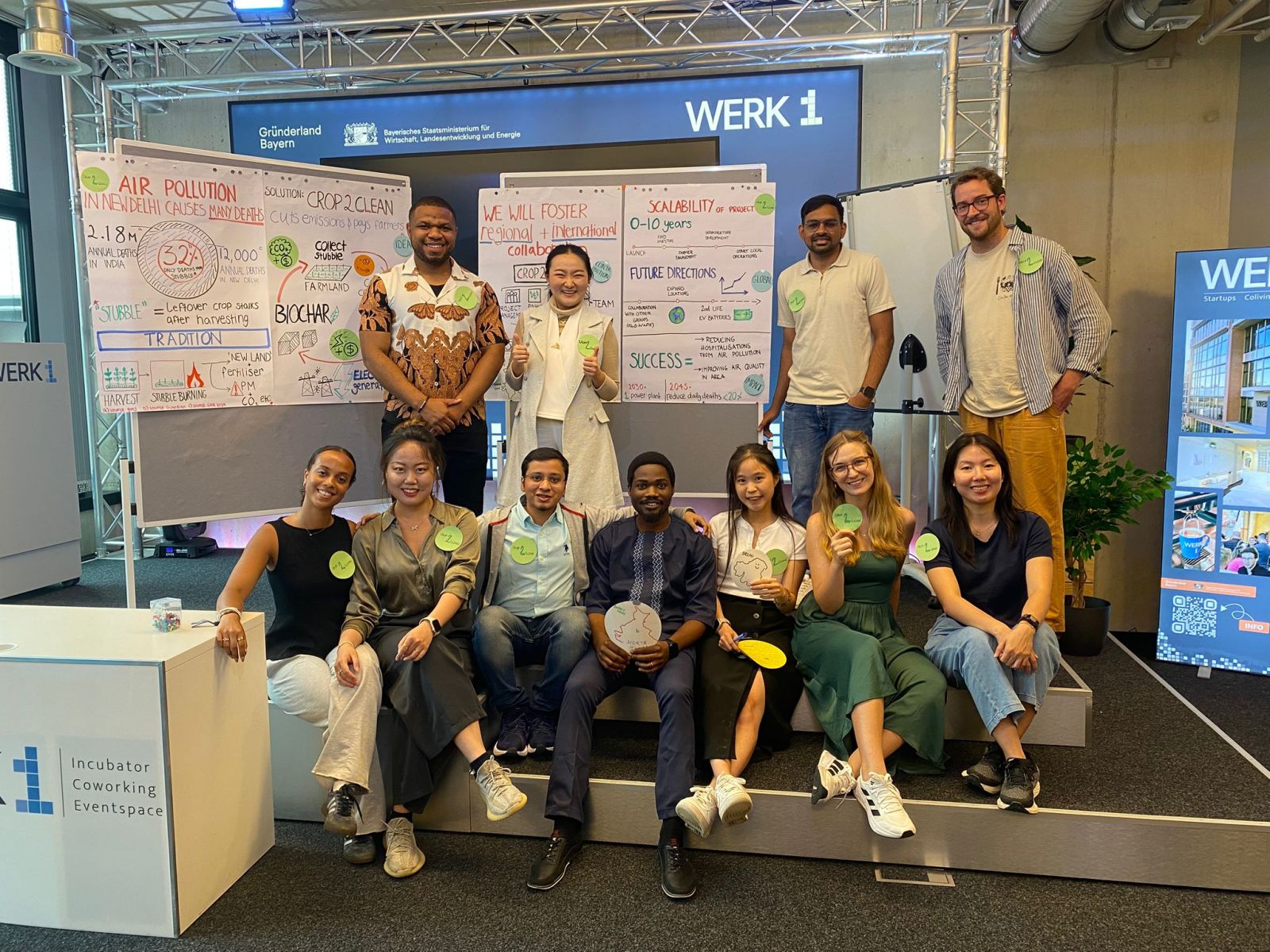
Q. Tell us what sort of creative innovations to address global challenges you have developed under the programme theme “Multidisciplinary solutions for climate-responsive societies”?
Sophia: I worked in the same team as Sid, and we tackled Delhi’s air pollution caused by stubble burning on the agricultural lands around the city. Our approach combined tradition and innovation; instead of burning crop residues, we explored turning them into greener biochar, which could be returned to farmers to enrich their soil. The controlled combustion process can further be used to produce energy, which we considered storing in used EV batteries. This circular solution not only reduces pollution but also adds value to existing practices, showing how multidisciplinary thinking can create practical, climate-responsive solutions.
Rishika: I was in another team and designed a draft proposal for tackling food waste in India in off-grid or resource-limited settings. Our approach was to integrate intelligent tracking on food packaging into an app. That app would enable all the different wholesalers of fruits and vegetables across Bangalore to reduce food waste.
Q. How does this contribute to your respective research work in renewable energy and alternative protein?
Sid: The learnings will be transferable to any field in a non-technical sense as the focus of the workshop – as emphasised by the coaches – was the process of collaboration rather than the technical aspect of the project. Collaborating and effective communication with people who may not understand the technical terminologies from my field were the biggest takeaways from this programme.
Sophia: It showed me how to transfer skills across disciplines. Collaborating with people from different backgrounds highlighted the importance of clear communication when explaining complex processes and how crucial it is to have a safe and trusting team environment where you feel comfortable asking any question.
Rishika: This programme brought fresh perspectives for me and taught me how to collaborate with people from other disciplines to further enhance my brainstorming skills. It also gave me an avenue, how I can put forth my ideas in a large group, through effective communication.
Q. Why should other doctoral candidates sign up for the Global Fellows Programme?
Sid: It's a great platform to put yourself out of your comfort zone to network in a large setting, voice your opinions out loud, talk through ideas without any restrictions or being judged. With the hustle of your own PhD work, this serves as a wonderful change in routine to really learn so many things from so many people, and to foster great friendships and connections which will be certainly needed after completing your PhD. Highly recommended!
Sophia: I’d especially recommend it for early-career researchers. The programme brings together like-minded people who are eager to create something new. It challenges you to work in a larger team and develop a project in just one week – a skill that will be valuable in any future career. Along the way, I met wonderful peers whom I look forward to seeing again.
Rishika: The programme is a rare opportunity to step outside your discipline, co-create with peers from around the world, and address urgent global issues from fresh perspectives. You not only develop tangible project concepts but also build a professional network that can shape your research trajectory and open doors to international collaborations.
Q. What’s next - are you doing a research stay at Imperial in London or at NTU in Singapore?
Sophia: We’re certainly considering it. Besides getting to know Munich and TUM, the programme created awareness about TUMCREATE and the research work that we do, with some students from TUM, NTU and Imperial already planning to visit us in Singapore. It also strengthened our ties with NTU, as we connected with several research groups: We’lll definitely meet again in Singapore. I’m curious to see what ideas might emerge from future lunch discussions.
Learn more about the GFP here
Contact:
Corporate Communications TUMCREATE
1 CREATE Way
#10-02 CREATE Tower
Singapore 138602Media and Communications
communications@tum-create.edu.sg


